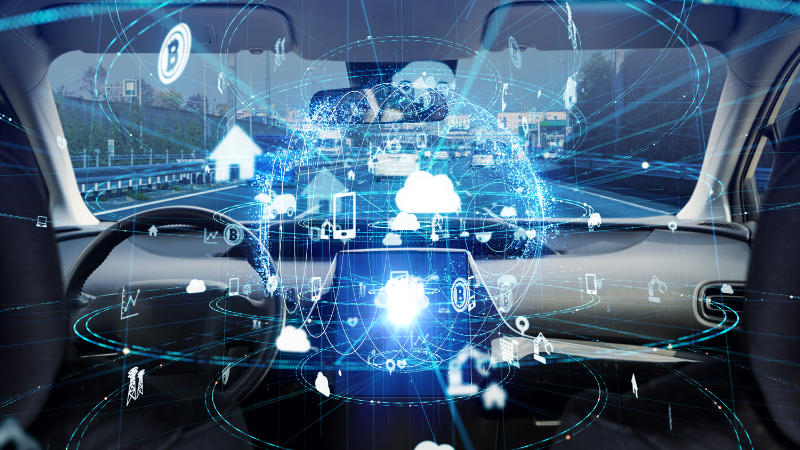
Experts say that autonomous cars will fundamentally change the way we live in the coming years. While we all know that their arrival will create more free time for us all, here's a look into some of the other positive impacts that autonomous vehicles (also known as driverless cars) can bring to society, including:
- Lower emissions
- Improved mental and physical health
- Fewer accidents
- Less traffic and road congestion
- Better mobility for the disabled and the elderly
Lower emissions
One of the most significant issues the world currently face is the need and race towards becoming more energy efficient. Fortunately, self-driving cars will use a lot less fuel and power compared to a human-driven vehicle. The development of these driverless vehicles will reduce and streamline the interior accessories with the steering wheel becoming obsolete in the future. The departure of 'traditional' driving accessories will free up space and open up the possibilities for a range of designs and purpose.
According to some automotive engineers, the optimisation of design can reduce a vehicle's aerodynamic drag by up to 20%, which will decrease fuel consumption proportionately. And as automotive technology advances further, materials used will become smarter and lighter. What's more, driverless cars will be able to maintain a steady speed that requires less braking or reacceleration and achieve a level of energy efficiency that conventional human-driven vehicles could not.
The combination of these three aspects will allow autonomous cars to give off lower emissions and help drive the world towards a more sustainable future!
Improved mental and physical health
Most people would generally agree that any time spent commuting or driving between places is tedious and unproductive. According to a survey conducted by 4Com Media, 73% of 25-34-year-olds believed that their daily commutes contribute to their stress levels.
Here, the arrival of autonomous vehicles can potentially halt the adverse effects by transforming commuting hours into extra leisurely time. The fundamental shift from the role of a driver to the passenger will make commuting a better and more enjoyable experience as users can now focus on other tasks instead of driving.
Fewer accidents
No matter how good a driver you are; you can't guarantee a safe journey. Up until now, everyone has accepted that driving can be dangerous because of human errors. Human errors consist of a range of things, including the lack of concentration, driving under the influence and speeding – all of which can have potentially fatal consequences.
Safety data about Tesla's autopilot feature usage is hugely promising. According to Tesla's Autopilot performance, a fatality occurs every 60 million miles, and the Tesla Model S has a fatality record of one in every 130 million miles. Tesla’s CEO, Elon Musk, predicted that the technology needed to operate fully driverless cars primarily without a driver being present would be available by the end of 2019.
The removal of the number cause for accidents (human error) on the road will significantly reduce instances of accidents caused by driver error, distractions and more importantly, drunk driving. Autonomous vehicles will undoubtedly help to save countless lives, whether that be drivers, cyclists, pedestrians as well as animals.
Less traffic and road congestion
Traffic is one of the most significant inconveniences in daily life, especially for those living in busy towns and cities. In the UK last year, the average commute time was 54 minutes with Londoners travelling a whopping 74 minutes on average!
The arrival of driverless cars can significantly improve congestion levels in high-density and urban areas with smart, networked autonomous vehicles able to determine optimum travelling speed and contribute to a continuous flow of traffic or reroute to less congested routes. Towns and cities will see a significant improvement in traffic management as a consequence of these changes.
Better mobility for the disabled and the elderly
The potential improvement to the lives of the elderly or people with disabilities is immense.It’s simple: autonomous vehicles will be able to offer a higher degree of mobility and independence to groups that previously had difficulty accessing transportations.
Technology has always offered exciting opportunities to give sections of society greater independence. For autonomous vehicles, the challenge is to address our trust in these systems and not in how it functions. In comparison, overcoming technical and technological challenges are more straightforward than the attitudes of people.
In summary, autonomous vehicles will positively impact many aspects of our daily life – from helping us create a more sustainable mean of transportations to creating a safer and more enriching commuting experience. The potential benefits of driverless cars are already appealing and given the next advancement of technologies in the coming years, the future for the industry is bright.
Read Automotive: Everything As A Service.





